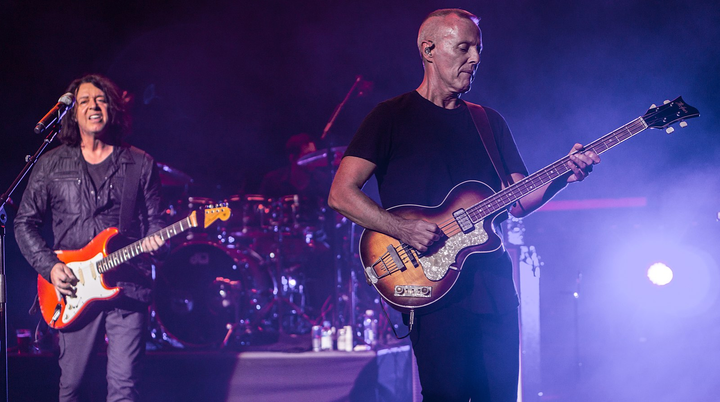Sheck Wes Makes a Name for Himself on New Album “Mudboy”
In an article I wrote last spring about the releases from up-and-coming artists signed by G.O.O.D. Music, I reviewed two singles by Harlem rapper Sheck Wes. At the time of the article, then-19-year-old Wes was in the midst of his climb to prominence. His single “Mo Bamba” had just gone viral, charting on the Billboard Hot 100 and peaking at No. 31.
Then, over the summer, he featured on Travis Scott’s “Astroworld,” which itself debuted at No. 1 on the Billboard 200, and later accompanied Scott on his hugely popular “Wish You Were Here” tour.
It’s safe to say that this fall, the time was right for Wes’ commercial debut. On Oct. 5, Wes delivered “Mudboy,” a 14-track album released under a joint deal by Kanye West and Pusha T’s G.O.O.D. Music and Travis Scott’s Cactus Jack Records.
As a debut, “Mudboy” is an emphatic introduction to Wes as an artist, and the album is unmistakably one-of-a-kind. It is incredible, in a time when hip-hop seems increasingly homogenized, just how quickly Wes has broken the mold.
Perhaps it’s due to his unique voice which wavers between yelling and whispering or perhaps it’s due to his already-iconic “B**ch” adlib, but the tracks on “Mudboy” — which includes no guest features — are instantly recognizable as Wes songs.
Wes opens the album with “Mindf**ker,” and immediately lets his cheekiness show through as he unexpectedly allows the instrumental to ride for almost a minute-and-a-half, only interrupting with the occasional adlib.
The risk pays off, as the dark DigitalNas instrumental sets up a great payoff with Wes’ verse. He vaguely details struggles with poverty and violence growing up in Harlem, dubbing himself a “Mudboy.” Throughout the song, he presents himself with an impudent bravado almost physically perceptible in the extreme emphasis he puts on the last syllable of each line.
And if “Mindf—–r” wasn’t enough of a personal statement, Wes follows it up with one of his biggest singles, “Live Sheck Wes,” which uses the same themes but ramps the energy up to 11. The verses, which paint a surprisingly vivid picture of an irreverent criminal lifestyle, are capped by the iconic chorus of Wes screaming “Live Sheck Wes, b**ch, I’m dying Sheck Wes!” The song has the power not only to inspire empathy for Wes’ difficult upbringing, but also rouse an inescapable energy and feeling of liberation in his recklessness.
The next two songs, “Gmail” and “Wanted,” ride on the braggadocios coattails of “Live Sheck Wes.” Both have dark beats that sit just behind the vocals and amplify the intimidation in Wes’ voice, as he yells in a whisper about selling drugs and being wanted by the police. On “Gmail,” Wes once again showcases his sense of humor as he brings the song to a halt midway through to explain his famous “B**ch” adlib.
Shortly afterwards, however, “Mudboy” begins to decline. On the three-track run of “Never Lost,” “WESPN” and “Kyrie,” it seems like Wes loses his purpose.
On “Never Lost” and “WESPN,” he attempts melodic rap, and with his voice, it simply does not work. While the tracks have some interesting moments and I applaud Wes for trying out different styles, the songs become monotonous.
On “Kyrie,” Wes struggles to recapture the magic of “Mo Bamba” with another ode to a basketball player. However, “Kyrie” falls flat and ends up sounding simply like an off-brand version of “Mo Bamba.” It doesn’t help the comparison that the two songs are right next to each other on the track list. On the other hand, maybe the arrangement is a blessing in disguise because after “Mo Bamba,” Wes seems to find himself again.
“Mo Bamba” does not require further praise in this review. It is by far the best song on the album. Wes’ energy is infectious, and his personality shines through to create an intense yet incredibly fun song.
The concluding section of the album is quite solid. The highlight of the last few tracks is “F**k Everybody” purely because of its high-octane chorus, which boils down the “Sheck Wes attitude” to a single phrase. The only low point is the penultimate track “Danimals,” on which Wes brings back his awkward singing.
Over the course of the album, Wes repeatedly establishes his persona and charms the listener with his youthful irreverence. His soft yet forceful voice is unique in hip-hop right now, and with it, he brings a special intensity to the album. This effect however, is a double-edged sword.
The album suffers most when Wes tries to diversify his sound and emulate other styles. Perhaps the solution lies in more varied production. Most beats on the album are spacey trap beats, which become somewhat forgettable after a while. The notable exception is the closing track, “Vetements Socks,” whose upbeat synths are a nice change of pace.
Overall, “Mudboy” is a satisfying debut that still leaves room for improvement. Although a great kickoff to Wes’ solo career, “Mudboy” leaves some questions unanswered. Can he vary his sound enough to keep listeners interested while remaining authentic? How well will he mesh with other artists on collaborations? Regardless of the answers, with cosigns from some of the biggest names in hip-hop, his future is all but guaranteed to be bright.





Comments ()